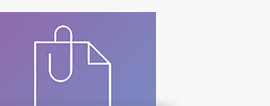Advances in technology and mobile communication have changed the way we manage our finances. These innovations save time and allow us to be more informed consumers. But the innovations have also introduced new risks and exposures. With time, your financial accounts will grow, as will the potential losses from identity theft and fraud.
Review your credit report regularly. You can download your free report and search for errors or indications of fraud at www.annualcreditreport.com. If you will not be in the market for a new loan soon, it is possible to freeze or lock your credit profile to reduce the chance of identity theft. In that case, you need to contact each of the three credit bureaus: Equifax, Experian, and TransUnion. Here is a link to learn more. https://www.consumer.ftc.gov/articles/0497-credit-freeze-faqs
If you receive a suspicious email, text, or voicemail that appears to come from your credit card company, do not respond. These communications can appear official but are often from hackers. If you are ever unsure about communications from your credit card company, call the number on the back of your card.
Be careful about what information you share online. Never provide a financial services company with more information than necessary for your online accounts. Most financial firms ask you to link other accounts with other financial firms on their client portal. A firm may suggest aggregating account information from other firms on their site will give you a more comprehensive view of your financial profile. I am concerned about the security of sharing all of your financial accounts and information on a financial company’s website. Financial firms want to know as much about you as possible for marketing purposes. Some online financial management or budgeting tools may ask you to link your investment account to a site, which also makes me nervous. These tools can be beneficial for tracking your spending and setting up automatic savings plans, but it is not necessary to link your investment account(s). Taking a holistic view of your investments is essential, but I recommend doing it offline.
Given the amount of sensitive information traveling through your computer and mobile devices every day, you need to protect your data and limit access to it. Install updates regularly because they can provide the most current defense against viruses and malware. Although it is obvious—and good common sense—avoid using open networks. Access your financial accounts only from a secure network.
Technology is an essential part of how we transact and manage our financial lives. We are more informed and have real-time access to our personal finances. Along with convenience, however, comes many risks. We must be thoughtful, diligent, and cautious when it comes to protecting ourselves and our money online.




